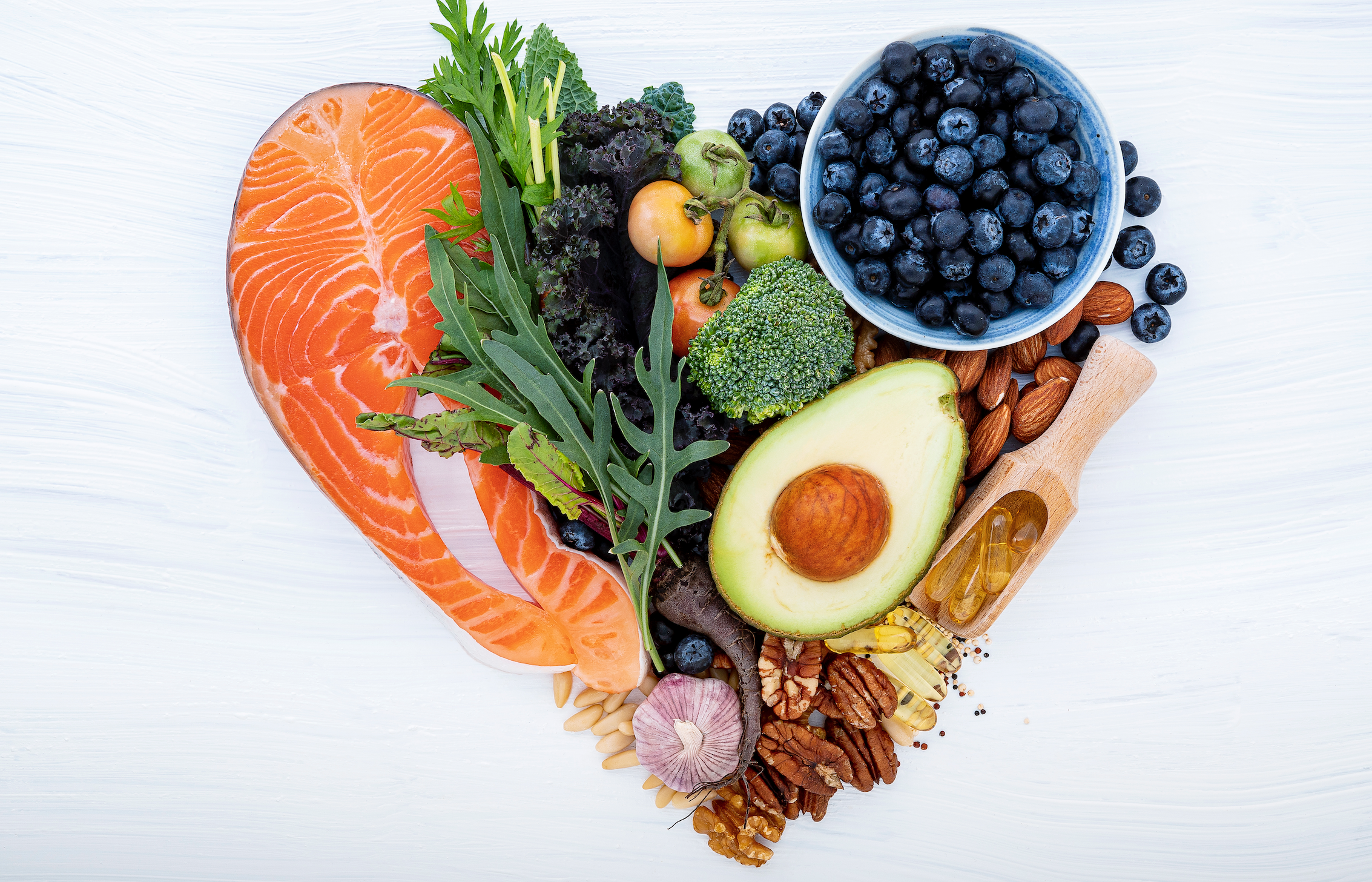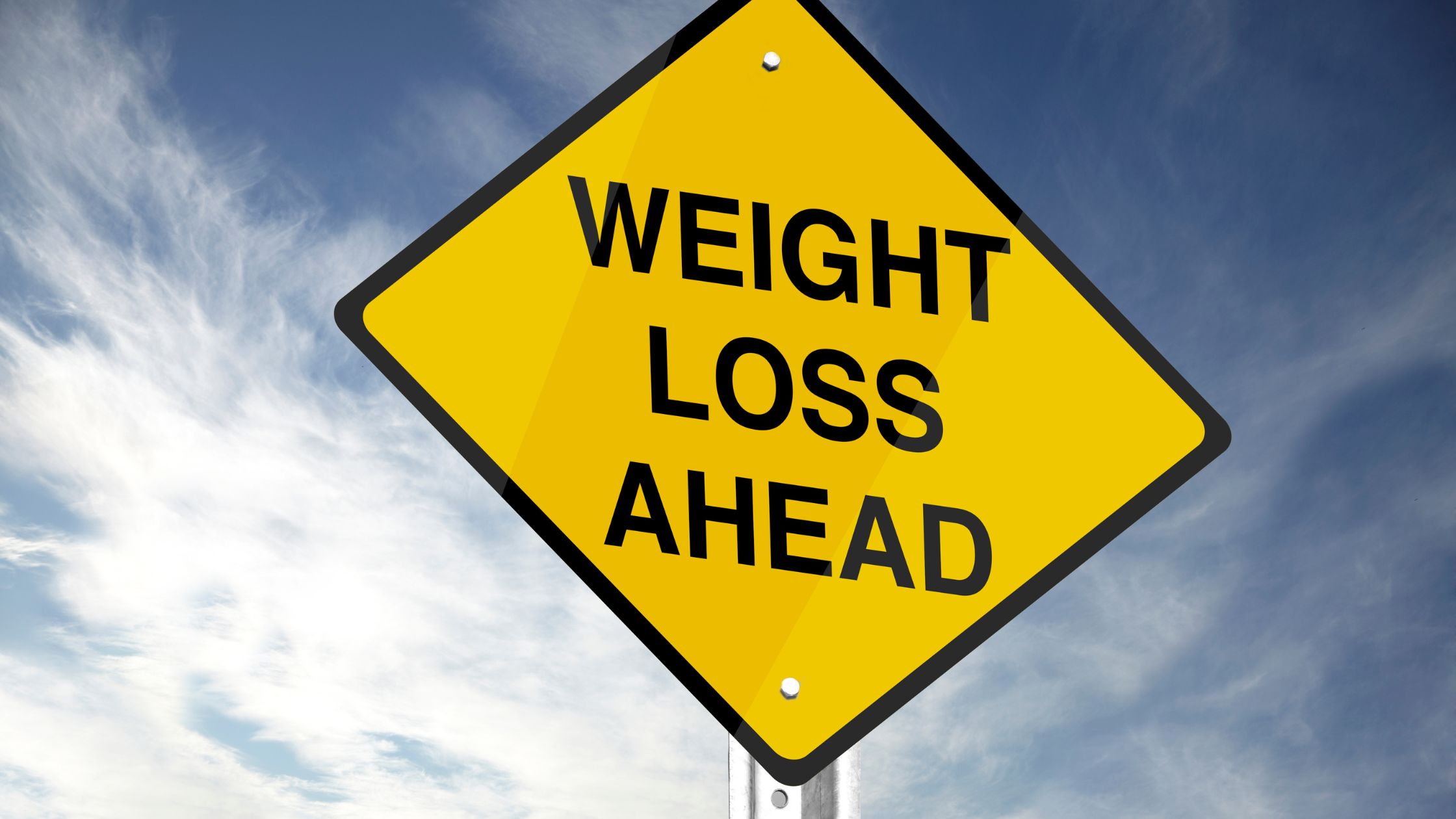Why Am I Not Losing Weight? Understanding The Basics Behind Weight Loss
Weight loss can be a difficult and frustrating journey for many people, but understanding the basics behind it can help to make the process much easier. With the right knowledge and strategies, you can learn why you're not losing weight and how to get back on track.

Why Am I Not Losing Weight? In this article, we'll discuss some of the most common reasons why people don't lose weight, as well as some tips on how to lose weight fast. We'll also explore some of the key elements that go into successful weight loss so that you can start making progress towards your goals.
Common Reasons You're Not Seeing Results
Why Am I Not Losing Weight? If you're not seeing the results you're expecting from your diet and exercise routine, there are a few common reasons why this may be happening. Firstly, it could be that you are not in a calorie deficit or that your diet is lacking in essential nutrients.
Additionally, it could also be that your metabolism isn't as boosted as it could be. Therefore, to ensure fat loss and to see results more quickly, make sure to create a calorie deficit diet plan, while also finding ways to naturally boost your metabolism such as through bodyweight exercises designed specifically for burning fat.

5 Reasons Why Am I Not Losing Weight Despite Following a Strict Diet & Exercise Plan
Losing weight is a challenging task that requires consistent effort and dedication. Many people follow a strict diet and exercise plan, but still, they fail to lose weight. This can be demotivating, and they may feel like giving up.
If you are in this situation, don't lose hope. We will discuss five reasons why you are not losing weight despite following a strict diet and exercise plan.
1. You are not eating enough

One of the most common mistakes people make while trying to lose weight is reducing their calorie intake too much. When you consume fewer calories than your body requires, your metabolism slows down, and your body starts conserving energy.
This makes it difficult for you to lose weight. Therefore, it is essential to eat enough to fuel your body while creating a calorie deficit.
2. You are not eating the right foods
Eating healthy foods is crucial for weight loss, but it's equally important to eat the right type of foods. Processed foods, sugary drinks, and junk foods are high in calories and low in nutrition, which can hinder your weight loss efforts.
Instead, focus on eating whole foods like fruits, vegetables, lean proteins, and whole grains.

3. You are not getting enough sleep

Sleep is essential for weight loss. Lack of sleep disrupts your hormones, increases cravings, and reduces your motivation to exercise. Aim for at least seven to eight hours of sleep every night to support your weight loss goals.
If you have trouble sleeping, try to establish a regular sleep routine, avoid caffeine and electronics before bedtime, and create a relaxing environment in your bedroom. By prioritizing your sleep, you can support your weight loss efforts and improve your overall health.
4. You are not consistent
Consistency is key to weight loss. Following a strict diet and exercise plan for a few days or weeks and then giving up will not yield results. It's essential to create a plan that you can stick to in the long term.
One of the best ways to ensure consistency is to make small changes every day. Instead of overhauling your entire lifestyle overnight, focus on making gradual improvements. Start by setting achievable goals like walking for 30 minutes a day or drinking more water. As you start to see progress, you can gradually increase your efforts.
Another way to stay consistent is to make it a part of your routine. Schedule your workouts and meals into your calendar like you would any other appointment. This will help you stay on track and make it harder to skip a workout or indulge in unhealthy foods.

5. You have underlying health issues

Sometimes, despite following a strict diet and exercise plan, you may not be able to lose weight due to underlying health issues. Conditions like hypothyroidism, insulin resistance, and PCOS can affect your metabolism and make it difficult to lose weight.
Hypothyroidism is a condition where your thyroid gland does not produce enough thyroid hormones, which regulate your metabolism. When your metabolism slows down, you burn fewer calories, making it harder to lose weight. Other symptoms of hypothyroidism include fatigue, cold intolerance, and hair loss.
Insulin resistance is a condition where your body's cells become resistant to insulin, a hormone that regulates blood sugar levels. This results in high blood sugar levels, which can lead to weight gain, especially around the abdomen. Other symptoms of insulin resistance include fatigue, cravings for sugar and carbohydrates, and high blood pressure.
PCOS (Polycystic Ovary Syndrome) is a hormonal disorder that affects women of reproductive age. It causes the ovaries to produce higher levels of male hormones, leading to irregular periods, acne, and hair growth. PCOS can also make it difficult to lose weight due to insulin resistance and other metabolic issues.
How Exercise Plays a Role in Achieving Your Weight Loss Goals
Why Am I Not Losing Weight? You're looking to lose weight and tone up, incorporating exercise into your routine is crucial. Exercise not only burns calories but also helps build muscle, which can boost your metabolism and help you burn more calories even at rest.
When it comes to weight loss, there is no one-size-fits-all exercise routine to lose weight fast and tone up. The key is to find a workout that you enjoy and can stick to in the long term. Whether it's running, weightlifting, or yoga, consistency is key to achieving your weight loss goals.
To challenge yourself and lose fat quickly and safely, you can also incorporate fitness challenges into your routine. These challenges can vary from high-intensity interval training (HIIT) to strength training circuits to outdoor activities like hiking or swimming.
However, it's important to approach these challenges with caution and listen to your body. Overexerting yourself or pushing yourself too hard can lead to injury or burnout, which can derail your weight loss progress.
Remember, exercise is just one part of the weight loss equation. Eating a healthy, balanced diet and prioritizing sleep and stress management are also crucial for achieving your goals. By incorporating exercise into your routine and challenging yourself with fitness challenges, you can boost your weight loss efforts and improve your overall health and well-being.

Tips For How To Keep Yourself Motivated Through the Process
Embarking on a weight loss journey can be challenging, and maintaining motivation throughout the process is key to achieving your goals. Here are some tips to help you stay motivated and on track:
Set Realistic Goals: It's important to set realistic goals that you can achieve. Trying to lose too much weight too quickly can lead to frustration and disappointment. Break your larger goal into smaller, achievable milestones, and celebrate your progress along the way.
Find Your "Why": Understanding your motivations for losing weight can help keep you motivated when the going gets tough. Maybe you want to improve your health, fit into a favorite outfit, or have more energy to keep up with your kids. Whatever your reason, remind yourself of it often.
Create a Plan: Creating a plan that works for you can help you stay on track. Set aside time each week to plan your meals and workouts. This can help you make healthier choices and ensure that you're getting enough exercise.
Mix it Up: Doing the same thing every day can get boring, so mix up your workouts and meals. Try a new recipe or workout routine to keep things fresh and exciting.
Get Support: Surround yourself with people who support your goals. Join a support group, find a workout buddy, or hire a personal trainer. Having someone to share your successes and struggles with can make a big difference.
Visualize Success: Visualization can be a powerful tool for motivation. Visualize yourself achieving your weight loss goals, and imagine how it will feel to reach them. This can help you stay focused on your goals and motivated to keep going.
Reward Yourself: Celebrate your successes along the way with non-food rewards, like a massage or new workout gear. This can help keep you motivated and remind you of how far you've come.
Remember, motivation is not something that comes naturally to everyone. It takes effort and dedication to maintain motivation throughout the weight loss journey. By setting realistic goals, finding your "why," creating a plan, mixing it up, getting support, visualizing success, and rewarding yourself, you can stay motivated and achieve your weight loss goals.


This is a very good article. Weight loss is very important especially today with the rising cases of obesity. I have a really good question for this really good blog. Do you believe that the foods that we are eating today has a lot to do with why it’s so hard to lose weight. I believe it was much easier to shed pounds in the past?
Thank you for the compliment and the great question! I do believe that the foods we eat today can make it harder to lose weight. Our modern diets are often high in processed and sugary foods, which can lead to weight gain and make it difficult to shed pounds.
In the past, people often ate simpler, whole foods that were less processed and contained fewer artificial ingredients. This type of diet can be easier for the body to process and may make it easier to lose weight.
However, it’s important to note that there are many factors that contribute to weight loss, and diet is just one of them. It’s still possible to lose weight with a modern diet, but it may require more effort and attention to the quality and quantity of the foods we eat.
Overall, making healthy food choices is essential for weight loss and overall health. It’s important to focus on eating whole, nutritious foods while minimizing processed and sugary foods to support weight loss efforts.
I also think losing weight has a lot to do with how old you are, and middle age has its own complicated hormones to contend with, not to mention the fact that you are a lot more sedentary as you get older.
I agree with you that long-term weight loss does take time and patience, and it is a matter of building good habits so that you don’t put all that weight back on once you lose it. I love the idea of motivating yourself with non-food rewards when you hit your next goal.
As the saying goes slow and steady wins the day. I notice people who try and lose weight fast end up putting it back on and more. I am not quite sure why this is?
Hi Michel, thank you for dropping by my site. Age can have an impact on weight loss, and it gets more complicated with middle age hormones and a sedentary lifestyle. To achieve long-term weight loss, building healthy habits is crucial. These changes should be sustainable and not lead to quick results that are difficult to maintain.
People who lose weight quickly often regain it as they revert to old habits. Celebrating progress with non-food rewards is a great way to stay motivated. Slow and steady progress is often the key to long-term weight loss success.
In fact, I have always wanted to lose weight, but every time I still can’t restrain the desire to eat.
I will be too tired after getting off work and don’t want to exercise. I think the lack of sleep is very serious for me.
But I sleep at least eight hours a day, and I still feel sleepy when I go to work.
I’m 28 now but obviously, my metabolism is much worse than before.
Especially now that many processed foods are flooding our lives, and natural and organic foods are usually more expensive.
Life is too convenient and sometimes it doesn’t look very good
Thank you for sharing your experience and struggles with us. We understand that losing weight can be a difficult and frustrating journey, especially when faced with busy schedules and tempting foods.
It is possible that lack of sleep could be contributing to your difficulty in controlling your eating habits and maintaining energy levels throughout the day. While it’s great that you are already getting eight hours of sleep per night, you may want to consider speaking with a healthcare professional to see if there are any underlying issues that could be affecting your sleep quality.
We agree that the prevalence of processed foods can make it challenging to find affordable, healthy options. However, there are still ways to incorporate more natural and organic foods into your diet, such as meal planning and shopping at farmers markets or co-ops.
It’s frustrating to put in effort to lose weight, but not see any results. These five reasons are definitely common culprits behind stalled progress, and it’s important to address them to continue making progress. I think it’s especially important to remember that not eating enough can actually harm your weight loss efforts by slowing down your metabolism. It’s also interesting to consider how sleep can affect weight loss, as it’s not always an obvious connection. Overall, it’s important to be patient and persistent, and to adjust your approach as needed.
Thank you for your comment! Yes! weight loss can be a frustrating journey. It’s easy to get discouraged when progress stalls, but understanding the reasons behind it can help us make the necessary adjustments and keep moving forward. I’m glad you found the section on not eating enough and the connection between sleep and weight loss interesting – they can definitely play a significant role in our overall progress. Thank you for sharing your thoughts and for emphasizing the importance of patience and persistence!
Thanks this was a good read. I like how you explained all the things that you could be doing wrong and then also laid out ways to work around them. I feel like my biggest problem with trying to lose weight is my extremely bizarre schedule. I am always on the go and on my feet when I am at work, but when I am working from home I’m seated most of the day trying to get the ball rolling.
Thank you for reading my article and for sharing your feedback! I understand how having a busy and unpredictable schedule can make it challenging to maintain a consistent routine for weight loss. One suggestion I have is to try incorporating some simple exercises or stretches during your breaks at work or while you’re seated at your desk.
Additionally, planning your meals ahead of time and packing healthy snacks can also help you stay on track even when you’re on the go. Keep up the great work and remember that small changes can lead to big progress over time!
You have hit the nail on the head for me on why I’m finding it hard to lose that last bit of weight. I am not consistent enough and my sleep is really bad. I used to be consistent until I developed IBS a few years ago. Since then, working out has become painful, it’s getting easier but it can be frustrating and mess with my motivation some days. I like to keep my head up because it has improved massively and I am getting parts of my strength back. Why do you think having too much of a calorie deficit can affect weight loss?
Hi Toheeb,
Thank you so much for sharing your experience and thoughts with me! It sounds like you’ve been through a lot and I admire your resilience and determination to keep pushing forward despite the challenges.
In response to your question, having too much of a calorie deficit can actually work against weight loss because it can slow down your metabolism and make it harder for your body to burn fat. When your body is not getting enough fuel, it goes into “starvation mode” and starts to conserve energy by burning fewer calories. Additionally, when you restrict your calorie intake too much, you may end up feeling hungry and deprived, which can lead to overeating and binging later on.
It’s important to find the right balance of calorie intake and exercise that works for your body and your goals, and to prioritize consistent sleep and self-care to support your overall health and well-being. Keep up the great work and stay positive!
This is something I struggle with big time! I do good for a day or two and then I fall off the wagon back at square one. I complain and then start over again beating myself for messing up once more.
My problem is that eating healthy foods is such a challenge for me as I am picky and I do not like any vegetables except of course starchy ones which aren’t good. I can work out but l the food I eat is a problem.
I know this is a bit off topic, but what do you think about incorporating intermittent fasting to lose weight?
Thanks for the tips! I will be using some you suggested to try to help me on my weight loss journey!
Lisa Marie
Hi Lisa,
Thank you for sharing your struggles with us! It can be challenging to stick to healthy eating habits, especially if you have a limited palate. Have you considered trying new recipes or experimenting with different spices and herbs to make your meals more enjoyable?
Regarding your question about intermittent fasting, it can be a helpful tool for weight loss. It’s important to make sure you’re still getting all the necessary nutrients during your eating windows, and it may not be suitable for everyone. It’s always best to consult with a healthcare professional before starting any new diet or exercise plan.
I’m glad to hear that you found some of the tips helpful and wish you the best of luck on your weight loss journey! Remember to be kind to yourself and celebrate your progress, no matter how small.
The post offers valuable and essential details about weight loss.
Identifying where you are and where you want to be is the key.
While eating healthily and adding exercise to your daily routine, along with hydrating your system, are the rituals one aims to do- to make it sustainable and consistent without getting bored during your weight loss journey can be tricky. Hence the advice in this post, like finding a trainer, and having a supporting body, helps.
Here is my story of weight loss.
My doctor identified severe Vitamin D deficiency in my blood plasma which had ripple effects of raised high blood sugar and insulin resistance in the system. Then the dietician recommended a plate system and portions to help the weight reduction.
Fixing Vitamin D deficiency was helpful, along with a plate system where a significant part was fruits and vegetables and some lean protein, mainly salmon, two times a week. Whole grain was brown rice (one-fourth of a cup of cooked rice). Every meal was optimized to care for complete nutrition.
This detail has kept me motivated until now, and it has been `8 years. The weight loss was slow and steady.
You have to mentally buy into whatever you choose. You have to enjoy it. It is okay to slip at times, but you come back. You are a human.
A little secret that worked for me was following Ayurveda drinking a glass of lukewarm water the first thing in the morning on an empty stomach.
You are keeping regular appointments with your primary care physician and team to know of your disease if any gives more clarity and makes you more confident. Knowledge becomes the key.
Hi Anusuya,
Thank you for sharing your weight loss journey and the strategies that have worked for you. It’s great to hear that you were able to identify and address the Vitamin D deficiency and incorporate a plate system for balanced nutrition. Your emphasis on enjoying the process and being kind to yourself when slipping up is also important.
And thanks for the tip about Ayurveda – I will definitely look into that! It’s encouraging to hear that with consistent effort and attention to our health, we can achieve sustainable weight loss. Keep up the great work and thanks for reading!
What a truly powerful article and placed right when my husband and I needed to see it! We are truck drivers and have been struggling with our weight since his heart attack. We knew we needed to change but didn’t know what we were doing wrong! It was like you were speaking directly to us! Thanks for this well-written piece!! We will definitely be following your article more!
Thank you so much for taking the time to leave a comment. I’m glad to hear that my article was helpful to you and your husband, especially during such a challenging time. I’m sorry to hear about his heart attack, but I’m glad that you both are taking steps to improve your health. Please don’t hesitate to reach out if you have any questions or if there is anything else I can do to support you on your journey. Best of luck to you both!
Hey Maxon,
I totally resonate with this piece – I’ve struggled with food and body image issues ever since I can remember. It’s been such a yo-yo kinda thing for me most of my life cycling in cycles of binging and starving.
But over this period of time, I’ve also experienced how the little, everyday things matter and how they are actually so much more critical, like, sleep, consuming the right kinda calories, upping your metabolism, and my favorite (and the one I struggle with the most!) – consistency!
Eventually, everything in life boils down to consistency, doesn’t it!?
Thank you for writing this piece – these days I’m again in some yo-yo-ing, & so it’s always good to have such reminders.
Thank you so much for sharing your experience and thoughts on the article. I’m glad that it resonated with you and that you found the tips helpful. I completely understand how challenging it can be to maintain consistency with healthy habits, especially when it comes to food and body image. But you’re absolutely right that the little things, like sleep and consuming the right kind of calories, can make a big difference. And yes, consistency is key! I hope that the article can serve as a helpful reminder for you and that you find success in your weight loss journey.